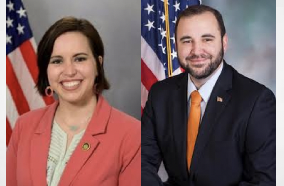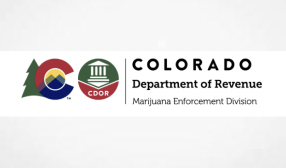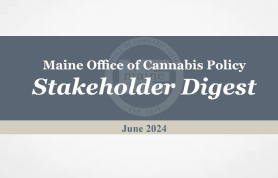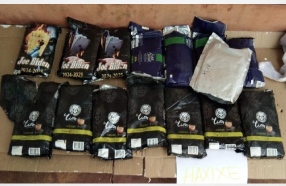Authored By: Rod Kight
5-12-18
The “Midwest Turnabout”, the name I’m giving to a rapid about-face on CBD policy that started with Indiana, appears to be turning into a trend.
Exhibit A: Wisconsin. On May 10 Wisconsin Attorney General (AG) Brad Schimel announced that farmers who grow industrial hemp under the state’s pilot program will not be prosecuted for producing cannabidiol (CBD) oil. This announcement came in the immediate wake of his meeting with the Wisconsin Farm Bureau Federation (WFBF), the state Department of Agriculture (SDA), Trade and Consumer Protection (TCP), and state legislators. What is striking about this announcement is that it is a complete turnabout from an April 27 unclassified Analytical Note by the Wisconsin Department of Justice (DOJ) and Wisconsin Statewide Intelligence Center (WSIC) stating that CBD was unlawful in the state. In a mere two weeks Wisconsin flipped from being a CBD pariah to a CBD haven.
Exhibit B: Indiana. A similar turnabout recently occurred in Indiana. On November 21, 2017 Indiana AG Curtis Hill issued an opinion stating that, “No one in Indiana is authorized to sell cannabidiol under Federal or State law, and therefore, any retail establishment selling anything that contains cannabidiol is in violation of the law.” Then, on March 21, 2018, a mere four months later (though a lifetime compared to Wisconsin’s flip), Governor Eric Holcomb signed into law a bill legalizing the sale and use of CBD oil. Specifically, he signed Senate Bill 52, making “low THC hemp extract” lawful if it is derived from industrial hemp grown under Indiana’s pilot program or the pilot program of another state, has delta-9 THC concentrations that do not exceed 0.3% (including precursors), and contains no other controlled substance. Much like Wisconsin, Indiana went from being a pariah to a haven overnight. In fact, because Indiana’s new law created much needed labeling requirements it has emerged as a budding regulatory leader in the rapidly emerging consumer market for CBD derived from industrial hemp.
(Possible) Exhibit C: Michigan. The same day that Wisconsin was publicly announcing its newfound support for CBD its neighbor, Michigan, came out against it. On May 10 the Michigan Department of Licensing and Regulatory Affairs (LARA) and the Bureau of Medical Marihuana Regulation (BMMR) released an Advisory Bulletin to “clarify” how CBD and industrial hemp are regulated. After a rambling and disjointed discussion of CBD and “marihuana”, the Bulletin concludes by stating, “The Industrial Hemp Research Act limits industrial hemp to cultivation or research and does not authorize its sale or transfer.”
Will Michigan soon do the Midwest Turnabout? I suspect that it will. However, the answer to that question will depend on a number of factors, the most important being public outcry. In the wake of both the Indiana and Wisconsin policy shifts there was a significant amount of public pushback. This is not surprising. According to a recent Wisconsin poll 59% of state residents favor “legalizing marijuana like alcohol”. Meanwhile, 73% of Indiana residents favor legalizing marijuana for medical use. CBD from industrial hemp, which has much less of a stigma than adult use or even medical marijuana, has even greater public acceptance.
Another factor is the particular legal posture of the state. Indiana fixed the AG’s opinion by quickly enacting new laws. Wisconsin, on the other hand, did not change its laws. Rather, it simply changed its policy. As we just saw, this is something that can be done in a matter of weeks. Michigan is a strange case. On the one hand, it has a medical marijuana program and so its residents clearly accept that cannabis has medical utility. For this reason, I expect a strong pushback to the Advisory Bulletin. On the other hand, its industrial hemp laws are overly restrictive and may require a legislative overhaul of them in order to pull off a Midwest Turnabout. Whether this will be an easy task remains to be seen. Given the existence of its medical marijuana program (MMP) and the built in acceptance factor that it brings this may be easy. However, I wouldn’t be surprised to see some resistance by MMP stakeholders who may prefer that CBD not be available to the general public in order to maintain greater market share of the overall medical cannabis business. I’ll be watching closely to see how this plays out.
In the end, the Midwest Turnabout may be a short-lived fad anyway since the Hemp Farming Act of 2018, if enacted, will make hemp derived CBD legal at the state level in all 50 states. As much as I enjoy watching states pull off the Turnabout, I’d prefer that the maneuver be unnecessary to begin with.
Rod Kight is a lawyer based in Asheville, NC. He is licensed in North Carolina and Oregon and represents legal cannabis businesses. You can contact him by clicking here.















